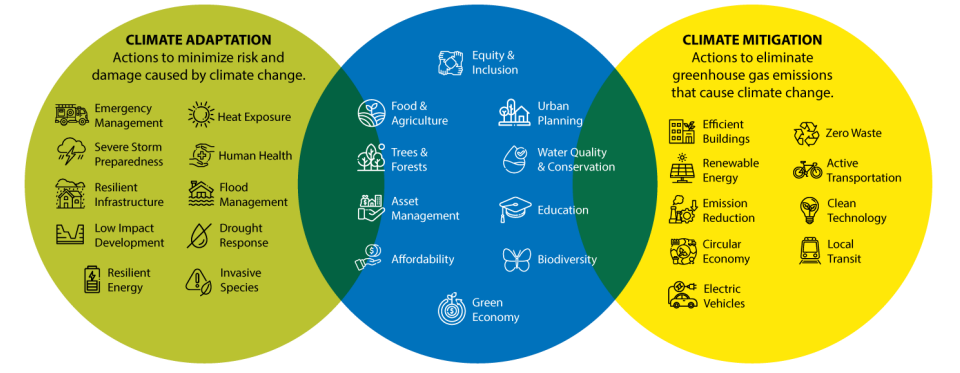Preparing Pickering for a Changing Climate
The City of Pickering has been proactively building climate resilience through a range of Council-endorsed programs, plans, and policies. These include the Integrated Sustainable Design Standards, Corporate Energy Management Plan, Amendment 23 to the Pickering Official Plan, Stormwater Management Design Guidelines, and the Community and Safety Well-Being Plan. In addition, the City supports the community during weather-related emergencies through measures such as warming and cooling centres at City facilities, naturalization projects, shade structures and splash pads, waterfront restoration, and the distribution of weather alerts and service disruption notices.
Building on these ongoing initiatives, in May 2025, Pickering Council endorsed the City’s first Community Climate Adaptation Plan (CCAP). Developed with input from residents, community organizations, technical experts, and regional partners, the CCAP serves as a roadmap to integrate climate resilience into City operations, services, and the broader community. The Plan outlines practical, measurable actions to help prepare for and respond to the impacts of extreme heat, heavy rain, and severe weather, with a strong focus on climate equity to support vulnerable populations.
Highlights of the Plan include:
- Integrating climate adaptation into municipal planning, infrastructure, and service delivery
- Ensuring climate equity by addressing the needs of vulnerable populations
- Implementing practical actions that will measurably improve community resilience
View the Community Climate Adaptation Plan (CCAP)

